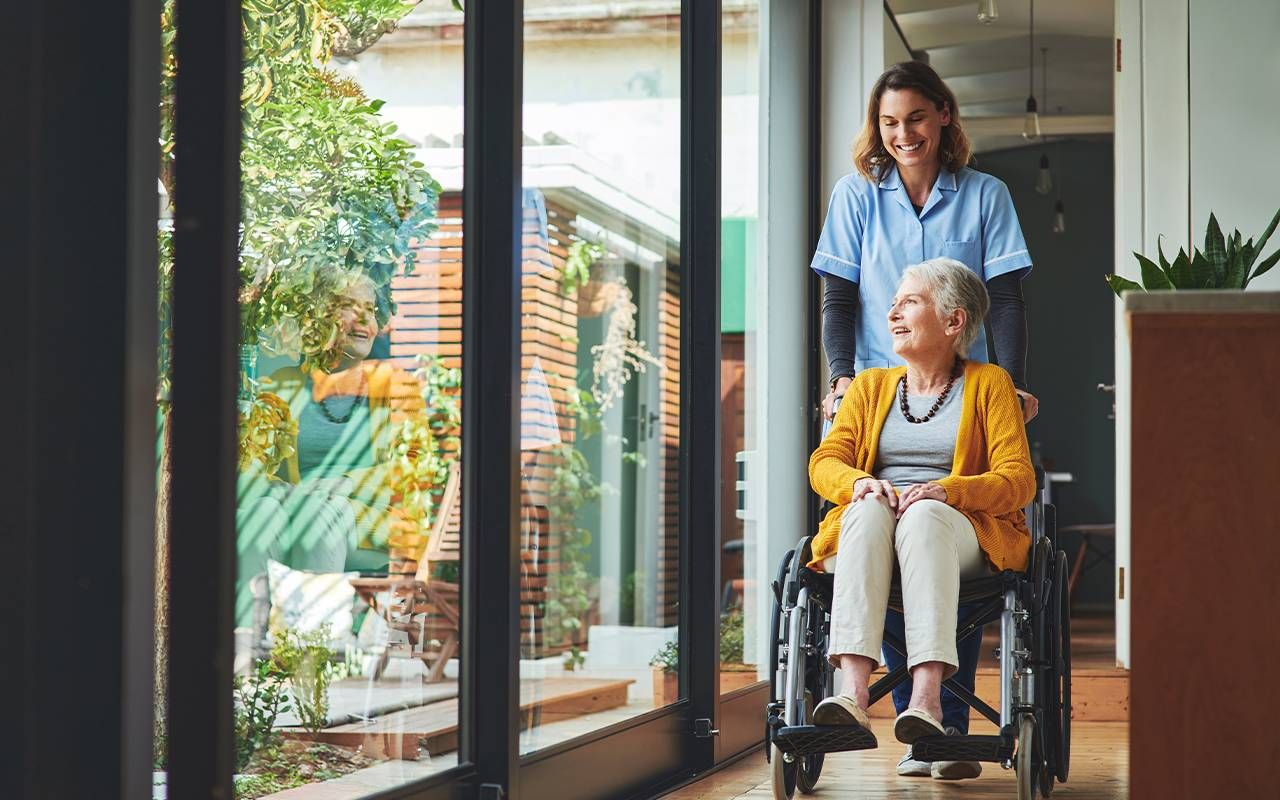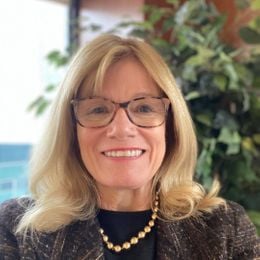If You See Something, Say Something: A Caregiver's Role in Keeping Older Adults Safe
If you are a family caregiver and feel something isn't right, you can and should speak up and ask questions.

"If you see something, say something." It's a familiar adage to encourage people to look out for each other and it rings especially true for family caregivers of older adults receiving health care. These caregivers have unique knowledge about the health, wellbeing and what matters most to the person they care for.
Obviously, the best case is when the older person can clearly articulate any concerns for themself. However, a caregiver may identify a potential safety issue before a doctor, nurse or even the older adult notices it themselves, and may be able to say something before harm occurs. Caregivers are vital members of the care team, whether in the home, hospital or doctor's office, and they can play an outsized role in patient safety.
To be most effective in that role, family caregivers need to know what they should look for and "see," and they need to feel emboldened to "say something."
In a 2019 survey of hospital experiences for people with Medicare, one in four people (25%) experienced harm — and 43% of the harm was preventable. The most common harms are due to medication errors, hospital-acquired infections, misdiagnoses, falls and bedsores from not being moved enough. Reducing harm in health care settings is part of what we call age-friendly care, or care that is evidence-based and prioritizes what matters most for older adults and their family caregivers. Hospitals, medical practices, nursing homes and other organizations that participate in the Age-Friendly Health Systems movement focus specifically on reducing harms. But as we all know, hospitals and health systems cannot provide care in a vacuum. They need the support of the whole caregiving team — including family caregivers — to provide the best care possible for older adults.
What Caregivers Can Do
If you are a family caregiver and feel something isn't right or have concerns with medical care, you can and should speak up and ask questions. This is especially important if the person you care for has dementia or cannot communicate directly with their clinicians on their own.
- Be on the lookout for medication problems. Medication problems in older adults can occur for many reasons, including fragmentation of care, meaning multiple clinicians providing care that is not well communicated or organized. That fragmentation may lead to duplicating medications or prescribing medications that dangerously interact with each other. In fact, 750 older adults are hospitalized daily in the United States due to complications from one or more medications. To best protect against medication problems, family caregivers can join the office visit and give the provider:
- A list of all medications being taken at home, including supplements.
- Any new medications being prescribed by all clinicians, e.g., optometrists, podiatrists, nurse practitioners.
- Information about any allergies or known reactions to drugs.
- Your questions about potential side effects and symptoms to look for.
2. Be alert to the potential for diagnostic errors. Older adults are misdiagnosed more often than younger people due to the complexities of caring for them. To avoid overdiagnosis, where someone is treated for a condition they don't have, or underdiagnosis, where the person is not treated for a condition they do have, family caregivers can:
- Make sure the entire care team understands an older adult's current symptoms and full medical history.
- Review the older adult's electronic health records to ensure the information is accurate (especially important as one in five patients had incorrect information in their medical records, according to a recent study).
- Speak up when you think there's a problem.
3. Seek help when using medical devices. Family caregivers often carry out complex medical tasks to support the person they care for. They may need to use complicated or intimidating medical devices to complete those tasks, like feeding tubes or oxygen tanks, without formal training or supervision. To best protect against medical device errors, family caregivers can:
- Seek resources on proper medical device use.
- Ask a member of the care team to demonstrate proper use.
Family caregivers know the people they care for better than almost anyone else. While patient safety ultimately rests with health care providers, family caregivers' opinions and knowledge can help prevent mistakes and ensure age-friendly care. Every caregiver should speak up when something does not seem right, and clinicians should encourage caregivers to contribute their insights to paint the fullest, most accurate picture of the older person's health.
Ultimately, supporting family caregivers by ensuring that medical staff treats them as valuable members of the care team, training them to use medical devices properly and bringing in professional help when they need a break helps increase safety and reduce harm.
So, if you see something, say something. The voice of every family caregiver needs to be heard.
# # #

The John A. Hartford Foundation is a private, nonpartisan, national philanthropy dedicated to improving the care of older adults. The leader in the field of aging and health, the Foundation has three priority areas: creating age-friendly health systems, supporting family caregivers, and improving serious illness and end-of-life care.


